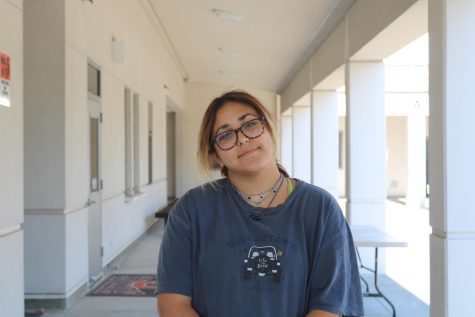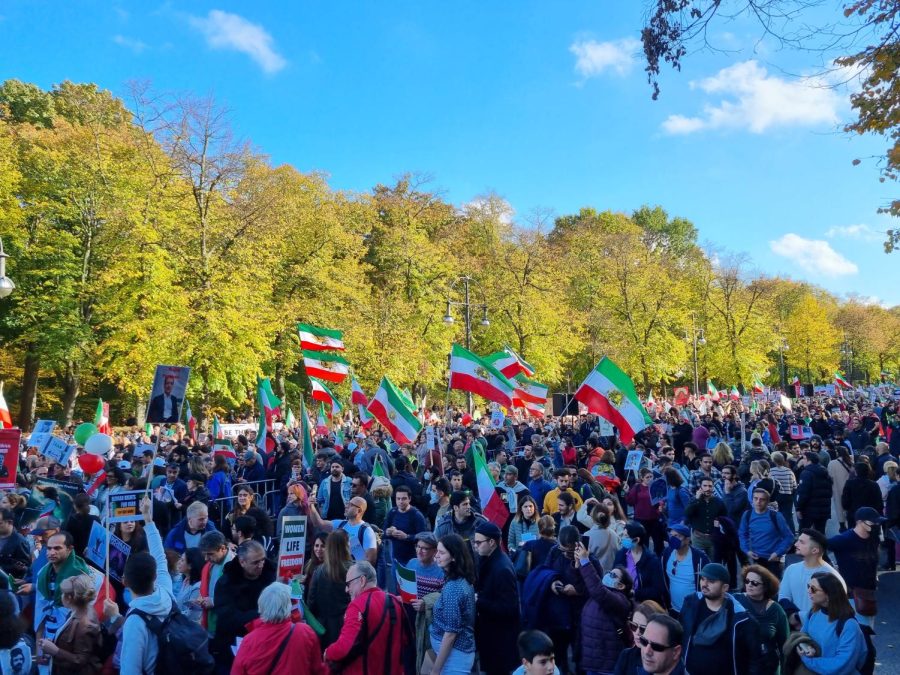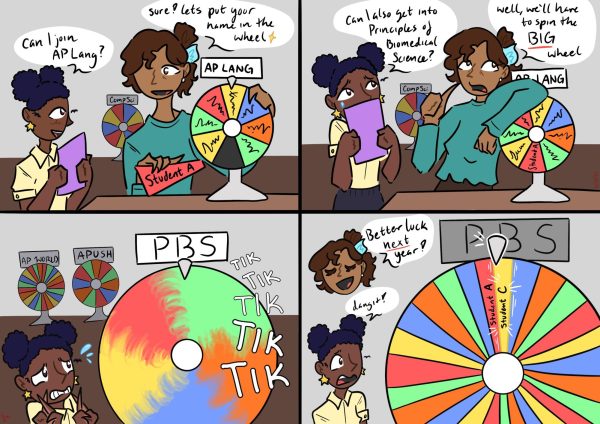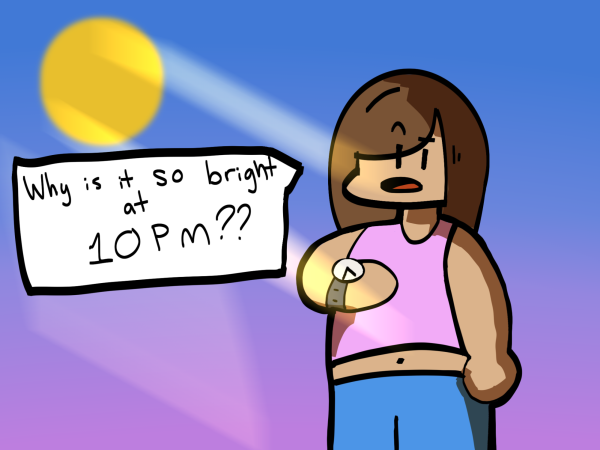Iran’s corrupt regime has been an issue for years
Citizens in Berlin stand in solidarity with Iranian citizens after the death of Mahsa Amini.
Prior to the 1979 Islamic revolution, Iran was a country filled with life and culture. But ever since the regime took over, every aspect of Iranian life has been censored.
Following the death of 22 year old Mahsa Amini in September at the hands of Iran’s morality police, protests blew up with people worldwide fighting for changes in Iran.
Amini, who was detained by morality police for not following strict hijab guidelines enforced by the government, died of a critical head injury while in custody of the police.
But this treatment of Iranians isn’t something new. The morality police have been active in Iran since 2005, and the Islamic regime has been in power since 1979. The branch was established to regulate what women in the country wear, and ensure they stay “modest” at all times.
So if Iran has been under this dictatorship for more than 40 years, why has it taken so long for people to speak out? In reality, the Iranian people have been trying to have their voices heard for decades. Western media just won’t listen.
Every time the government has tried to silence Iranian people, they have fought back. From the 2009 Green Movement to fight against corrupt election results to Bloody November in 2019 to protest the hike in fuel prices, Iranians don’t back down. But even when their own government kills them in the streets, they receive no media coverage.
While Iranians have always been aware of how corrupt their country is, Amini’s death was the first time news from Iran made it to Western media, and instead of criticizing, they stood with the Iranian people. Because, for the first time since the revolution, the news about Iran was coming from Iranian people, and not the regime.
What truly keeps the events going on in the country in the international spotlight is the Iranian people’s resilience, not only in Iran, but worldwide. It has been almost three months since Amini was killed, and still, every day Iranians go out on the street and fight against the morality police by refusing to wear hijabs, which have been mandatory in the country since 1979.
Even after the Islamic Republic claimed to disband the morality forces, the people continue to fight because they have put up with the regime long enough to know their true intentions. They fight because they know there is no reform that can bring back their country, only revolution.
After the revolution, there was an influx of educated Iranians leaving the country and moving to escape from the country’s censorship. The government knows that those with a higher education can see through the corrupt lies of the regime, so they constantly try to silence them. The most recent attempt of silencing citizens’ voices was as recent as Dec. 5, when they attempted to poison more than 1,200 university students.
It’s no secret that Iran is facing horrific events, making headlines all over the world. But what must be known, that isn’t already obvious, is that these events are nothing new to the citizens of Iran.

Senior Rebbeca Haghnegahdar is a staff writer for The Californian and is in her first year at Cal, and she joined the newspaper after being involved in...


